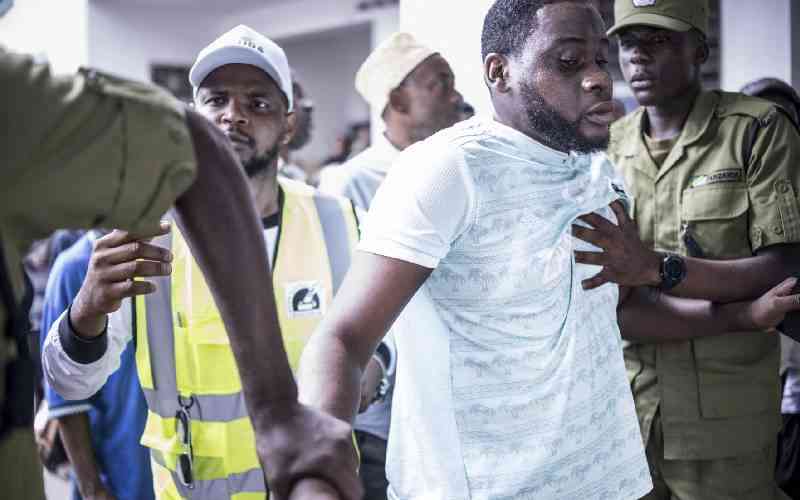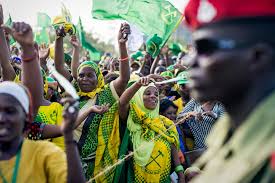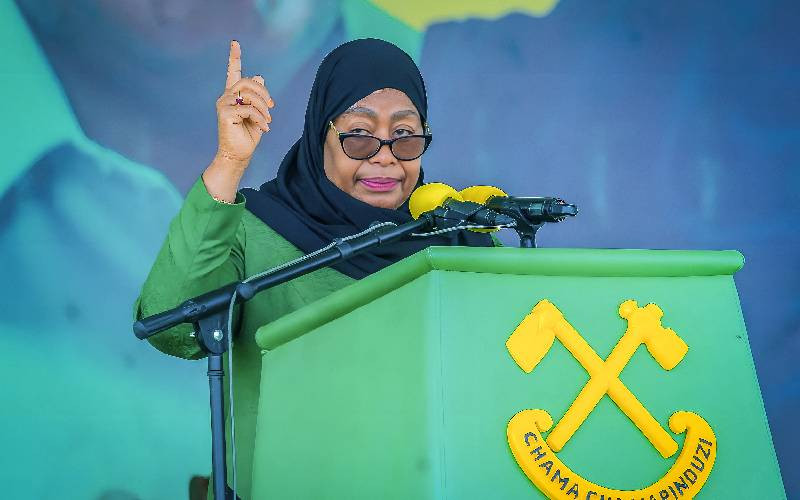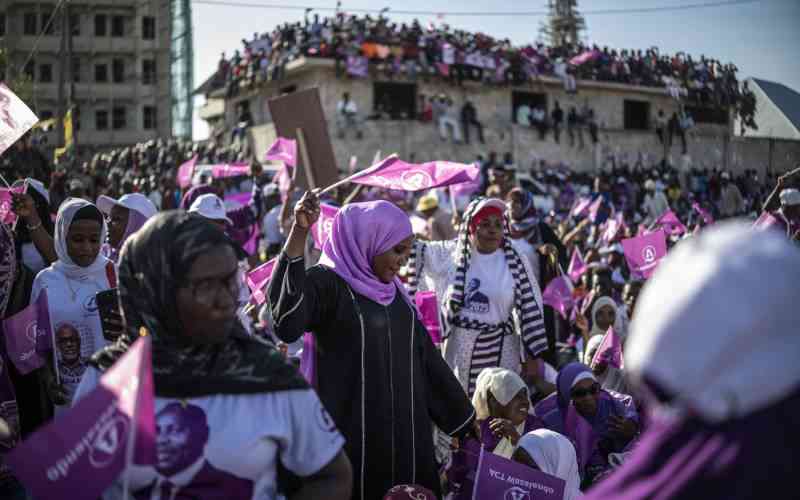Tanzania's Tense Election: Violence, Low Turnout, and International Warnings Spark Controversy

Tanzania’s general election on October 29, 2025 has been marred by widespread disruption, reports of violence, extensive internet shutdowns and significantly low voter turnout across various parts of the country. The highly contentious electoral process is viewed as a crucial test of Samia Suluhu Hassan’s leadership and has come under intense scrutiny both domestically and internationally. In the commercial capital of Dar es Salaam (Tanzania’s largest city), multiple polling stations in the Ubungo and Kimara districts and near Mlimani City Mall were reportedly attacked and set ablaze by unidentified groups on election day. Witnesses and independent bloggers described scenes of chaos, with voting failing to commence in some areas even by midday as police moved in to restore order. Tanks were reportedly deployed around the city by police, and repeated government threats against protests appear to have back-fired, triggering palpable fear and contributing to the sparse attendance at polling centres.
Internet access across the country has been severely restricted since early morning, hampering traditional media outlets’ ability to report from affected areas. Only a handful of bloggers and social media users managed to post updates online, painting a grim picture of the situation. The Tanzania Broadcasting Initiative (TBI) even instructed its observers to remain indoors, fearing they might be mistaken for electoral officials amid the unfolding chaos, further underscoring the perilous environment for independent monitoring. Widespread voter apathy has emerged as a defining characteristic of the mainland election, attributed largely to the sidelining of key opposition figures. Main opposition leader Tundu Lissu of the Chadema party is currently facing treason charges and his party was barred from running, while another major challenger, Luhaga Mpina of ACT‑Wazalendo, was disqualified on technical grounds. In districts such as Buyuni in Ubungo, disgruntled voters described confusion and fear, with many deliberately spoiling their presidential ballots in protest, frustrated that their preferred candidate was “behind bars”.

Human rights organisations have been vociferous in condemning the pre-election environment. Amnesty International and Human Rights Watch have both denounced a “wave of terror” ahead of the vote, citing enforced disappearances, torture, intimidation and extrajudicial killings of opposition figures and activists. Local reports suggest that even members of the ruling Chama Cha Mapinduzi (CCM) party who criticise the president face severe retaliation, including abductions, such as that of former CCM spokesman and ambassador Humphrey Polepole, whose home reportedly contained blood-stains. The Tanganyika Law Society has confirmed 83 abductions since President Suluhu Hassan took office, with 20 reported recently.
Despite the turmoil, President Samia Suluhu Hassan, the CCM presidential candidate, cast her ballot earlier in her home region of Chamwino, Dodoma. She told reporters the exercise “marks another important moment for Tanzanians to choose peace and progress.” Her running mate, Ambassador Emmanuel Nchimbi, also voted in Kilimani, Dodoma. Analysts suggest President Suluhu Hassan is determined to secure an emphatic victory in order to consolidate her position and silence internal party critics, even as police arrested 17 individuals in the north-western Kagera region for planning unrest on election day. In contrast to the mainland, the semi-autonomous archipelago of Zanzibar — which held its special early voting the day prior — reported a peaceful and orderly process according to the Zanzibar Electoral Commission (ZEC). CCM candidate Dr. Hussein Mwinyi voted at Kariakoo Polling Centre. ZEC Chairperson George Joseph Kazi acknowledged minor issues but generally praised the conduct. However, the exclusion of independent civil-society observers on the islands raised significant concerns about transparency and accountability, leading to fears that underlying tensions might only surface when results are announced.
The international community has voiced alarm. The U.S. Embassy in Tanzania issued a security alert, urging American citizens and embassy personnel to remain indoors due to ongoing demonstrations in locations including Dar es Salaam, Dodoma, Mbeya, Tunduma and Arusha. The embassy called on all political parties and government institutions to “avoid further escalation, engage in dialogue, and ensure that citizens can choose their leaders freely and in accordance with the Constitution”, linking the unrest to deep political tensions and questioning Tanzania’s ability to conduct inclusive elections. Furthermore, foreign journalists attempting to cover the election faced significant obstacles — with many accreditation requests routed through the Ministry of Information in Dar es Salaam, effectively barring many from observing the mainland vote.
Political analysts, speaking anonymously due to fear of reprisals, describe the current election as “less about competition and more about control”, taking place “under the shadow of fear”. One analyst in Dar es Salaam expressed concern that the current climate, characterised by state control and throttled opposition, may become the “new normal” for Tanzanian elections, rather than an anomaly. This viewpoint stands in spite of a relatively healthy economy, which grew by 5.5 per cent last year. As polls closed, independent monitoring bodies continued to track developments, urging authorities to ensure safety, transparency and respect for the rule of law amid a persistent communication blackout. Official results are expected within three days, but concerns about the integrity of the process remain high.
You may also like...
Bulls Channel Jordan Era Magic: Team Achieves Historic 5-0 Start for First Time Since 90s Dominance

The Chicago Bulls have soared to an impressive 5-0 start, leading the Eastern Conference for the first time since the 19...
SGA's Home Targeted: Police Probe Break-In at Star Player's Residence

Oklahoma City police are investigating a burglary at NBA star Shai Gilgeous-Alexander's home, an incident that aligns wi...
Horror Maestro Mike Flanagan's Stephen King Epic Inches Closer to Reality

Production has officially wrapped for Mike Flanagan’s series adaptation of Stephen King’s "Carrie." Flanagan revealed a ...
Bollywood Titans Unite! Netflix Secures Massive Deal with Yash Raj Films

Yash Raj Films and Netflix have joined forces to bring a vast catalog of Bollywood classics to global streaming audience...
Rap's Unprecedented Chart Slump: The Alchemist Sounds Off on Hot 100!

For the first time since 1990, rap songs are absent from the Billboard Hot 100's top 40, ending a 35-year streak. This s...
Beatles Biopic Reveals Star-Studded Cast for Fab Four's Wives!

The upcoming four-part Beatles biopic has announced the actresses cast as the wives of the Fab Four, joining a stellar l...
Pensioners Alert! Crucial Winter Fuel Payment Dates & Amounts Revealed!

Millions of pensioners in England and Wales are set to receive DWP Winter Fuel Payments of £100 to £300 starting this mo...
Unmissable Skincare Deal: Boots' No7 Gift Set Slashes £96, Promises 'Life-Changing' Results!

Boots is offering significant discounts on popular beauty items, including the No7 Future Renew Collection Gift Set at b...
&format=jpeg)


